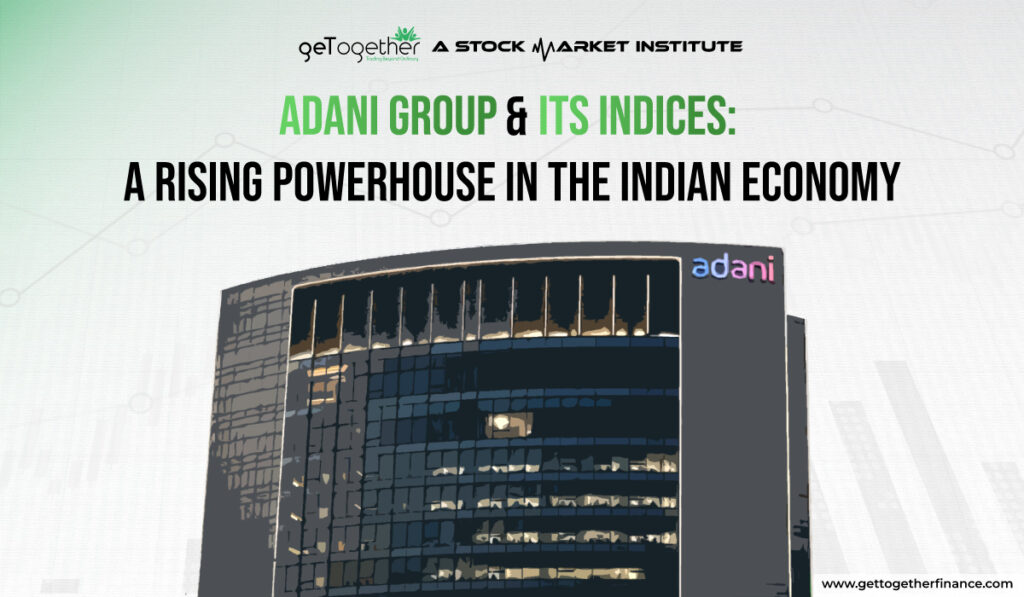Investigation of Gautam Adani is necessary in national interest, matter reached Supreme Court
.
.

Investigation of Gautam Adani: A National Interest Matter Reaching the Supreme Court
Gautam Adani, the chairman and founder of the Adani Group, is one of India’s most influential and wealthiest business magnates. Over the past two decades, his company has grown exponentially, expanding into diverse sectors, including energy, infrastructure, ports, logistics, and mining. The meteoric rise of Adani’s business empire, however, has not come without controversy.
Allegations of financial irregularities, stock manipulation, crony capitalism, and environmental damage have plagued the group, leading to questions about the company’s influence in India’s economic, political, and social spheres. As these concerns mount, there has been a growing call for an investigation into the Adani Group’s practices, particularly regarding corporate governance, financial transparency, and regulatory compliance.
In light of these allegations, the issue has now reached the highest court in India: the Supreme Court. The matter has sparked debates about the need for greater scrutiny of corporate power in India, the role of regulatory agencies like the Securities and Exchange Board of India (SEBI), and the broader implications of these issues for the country’s economy and democracy. The investigation of Gautam Adani and his business empire is being viewed as a matter of national interest, with far-reaching consequences for governance, transparency, and accountability in corporate India.
The Rise of Adani Group
Before diving into the need for an investigation, it is essential to understand the trajectory of the Adani Group, which has grown into one of the largest conglomerates in India. Founded in 1988 by Gautam Adani, the group initially started as a commodity trading business. Over the years, the company expanded its reach into multiple sectors, including:
Energy: The Adani Group is a significant player in India’s energy sector, particularly in thermal power generation, renewable energy, and electricity transmission. Adani Green Energy, a subsidiary of the group, has emerged as one of the world’s largest renewable energy companies.
Infrastructure and Ports: The Adani Group operates India’s largest private port at Mundra in Gujarat. The group also has interests in road projects, airports, and logistics.
Mining: Adani Mining, part of the group, is involved in coal mining, including the controversial Carmichael coal mine project in Australia.
Aviation: The Adani Group has also ventured into the aviation sector by acquiring airports in India, including those in Mumbai, Ahmedabad, and Jaipur.
Gautam Adani’s wealth, which has reached billions of dollars, has made him one of the richest men globally. His close ties with the Indian political leadership, particularly with Prime Minister Narendra Modi, have also attracted attention and raised concerns about the intersection of business and politics in India.
Allegations Against the Adani Group

Despite the group’s significant contributions to India’s economic growth, the Adani Group has been embroiled in multiple controversies over the years. These controversies primarily revolve around allegations of corporate malpractice, market manipulation, and questionable environmental practices.
1. Hindenburg Research Allegations
In January 2023, the Adani Group became the subject of intense scrutiny after the release of a report by Hindenburg Research, a US-based short-selling firm. The report accused the group of engaging in stock manipulation, accounting fraud, and financial misreporting. The report claimed that the Adani Group had inflated its stock prices through offshore shell companies and other questionable financial practices. It further alleged that the group’s publicly reported financial health was misleading, with its debt levels far higher than disclosed.
The Hindenburg report caused an immediate and massive drop in the stock value of Adani Group companies, resulting in a loss of billions of dollars in market capitalization. The group denied all allegations, describing the report as baseless and motivated by malicious intent. However, the damage to its reputation and market standing was considerable.
2. SEBI’s Role and Investigation
In response to the allegations, the Securities and Exchange Board of India (SEBI), India’s primary market regulator, announced an investigation into the Adani Group’s financial dealings. The investigation was focused on whether the group had violated Indian securities laws, including those related to stock price manipulation, disclosure practices, and governance standards. SEBI was also tasked with examining the relationships between Adani Group companies and offshore entities, as well as potential conflicts of interest within the group’s leadership.
However, critics have raised concerns about SEBI’s ability to independently investigate such a powerful business conglomerate, given its close ties with the government and the Adani Group. There have been accusations that the regulatory body has been slow to act or has been influenced by political pressures, thus compromising its effectiveness in ensuring fair and transparent market practices.
3. Environmental and Social Concerns
Beyond financial issues, the Adani Group has also faced significant opposition from environmentalists and local communities regarding its various projects, particularly its coal mining operations. The Carmichael coal mine project in Australia, which has been a focal point of global environmental protests, has been accused of contributing to climate change, damaging local ecosystems, and violating indigenous land rights.
In India, the Adani Group has faced similar criticism over its large-scale infrastructure projects, such as the development of ports, airports, and power plants. Environmental groups have claimed that these projects have led to deforestation, water depletion, and the displacement of local communities. In some cases, the company has been accused of ignoring environmental regulations and bypassing community consultation processes.
4. Political Allegations and Crony Capitalism
A key issue that has contributed to the scrutiny of the Adani Group is its close political ties, particularly with Prime Minister Narendra Modi. The group has been accused of benefiting from preferential treatment due to its association with the ruling government. Critics have argued that the Adani Group has received favorable policies, land acquisitions, and contracts in exchange for its political loyalty.
While both Gautam Adani and Narendra Modi have repeatedly denied any improper links, the perception of crony capitalism remains widespread. The scale of the group’s expansion, coupled with its political connections, has raised questions about whether its rise to power has been facilitated by its ties to the government rather than by fair competition in the marketplace.
Why the Investigation is Necessary
Given the allegations against the Adani Group, an investigation has been deemed necessary for several reasons, particularly in the context of national interest.
1. Upholding Corporate Governance and Transparency
Corporate governance and transparency are the cornerstones of a fair and competitive business environment. The Adani Group, with its large market presence and significant influence, must be held to the highest standards of corporate responsibility. The allegations of stock manipulation, accounting fraud, and misreporting in the Hindenburg report call into question the integrity of the group’s financial practices. Investigating these issues is crucial to ensure that the Adani Group, and by extension, other corporate giants in India, comply with the country’s regulatory framework.
If the allegations are proven to be true, it would send a strong message that no entity, regardless of its size or political connections, is above the law. Moreover, such an investigation could help rebuild investor confidence in India’s financial markets, which may have been shaken by the Adani Group’s alleged practices.
2. Protecting the Environment and Local Communities
The environmental and social impact of the Adani Group’s projects cannot be ignored. The company has been accused of disregarding environmental regulations, damaging ecosystems, and displacing vulnerable communities for the sake of profit. Investigating these concerns is essential to safeguard the long-term sustainability of India’s natural resources and ensure that business growth does not come at the cost of environmental degradation or social inequality.
India is facing a climate crisis, and it is essential that large corporations like the Adani Group take responsibility for their environmental footprint. A thorough investigation into their practices will help determine whether they have followed due process and adhered to environmental norms, or if they have circumvented regulations to expedite their projects.
3. Ensuring Accountability in a Democracy
India’s democracy is founded on the principles of accountability and transparency, and corporate entities must operate within this framework. The Adani Group’s rapid growth and political connections have raised concerns about the influence of money and power in shaping India’s economic policies. Investigating the Adani Group’s alleged involvement in crony capitalism and undue political influence is critical for upholding democratic values and ensuring that the interests of ordinary citizens are not undermined by powerful business interests.
If the allegations of political favoritism are substantiated, it would highlight the risks of unchecked corporate power and its potential to skew policy decisions in favor of a select few. The investigation will help determine whether the group’s success has been driven by merit or by access to government patronage.
The Role of the Supreme Court
Given the gravity of the allegations and the widespread public interest, the matter of investigating the Adani Group has reached the Supreme Court of India. The court has been asked to oversee the investigation and ensure that it is conducted impartially and independently.
The Supreme Court’s involvement is crucial in guaranteeing that the investigation remains transparent and free from external pressures, particularly given the political and corporate connections that have been linked to the Adani Group. The court’s ruling could set a precedent for how such cases are handled in the future, both in terms of corporate accountability and regulatory oversight.
The Supreme Court’s intervention also highlights the importance of maintaining the integrity of India’s financial markets and institutions. As the nation continues to grow as a global economic power, it is essential that regulatory bodies like SEBI are able to operate without interference, ensuring a level playing field for all businesses.
Conclusion
The investigation of Gautam Adani and the Adani Group is not just a corporate matter; it is a matter of national interest. It touches upon critical issues such as corporate governance, environmental responsibility, political accountability, and the overall integrity of India’s financial markets. The allegations against the Adani Group have raised questions about the role of power and influence in shaping India’s business environment and have underscored the need for robust regulatory mechanisms to ensure fairness, transparency, and sustainability.
As the investigation unfolds, it will be crucial for the authorities, including SEBI and the Supreme Court, to maintain the highest standards of impartiality and fairness. The outcome of this investigation will not only determine the future of the Adani Group but also set a precedent for how corporate giants in India are held accountable for their actions. Ultimately, the integrity of India’s democratic institutions, financial markets, and environmental future depends on the outcome of this critical investigation.
News
Scandalous! Celebrity Caught in a Shocking Incident with a Fan in Public!”
Shocking Incident Involving Kareena Kapoor: A Fan Misbehaves in Front of the Media In a deeply unsettling incident, Bollywood actress Kareena Kapoor Khan found herself at the center of an unexpected and distressing situation when a fan reportedly touched her…
End of content
No more pages to load






